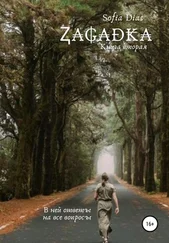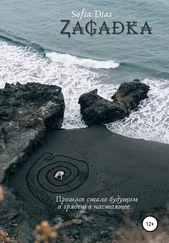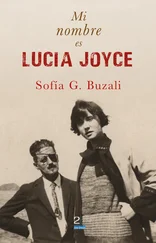He never seemed old to me, though he certainly had a great appetite—for sights, for the sounds of birds, for the smell of the sea, for the words of our language. And sometimes, too, he would take to his bed, his body wracked with fevers, with the stricken expression of one who has not long to live and whose life is unfinished. I nursed him through his fevers, reading aloud from the Vanathul because he believed words had the power to cure all ills. I loved him as if we were partners in exile, for only with him could I speak of books, enjoying that conversation which Vandos calls “the food of the gods.” And yet there was something unyielding in him, something unconquerable, an unknown center which he guarded with care, which was never revealed to me, so that, while I knew him best, he seemed to hold me at a distance. Even in his delirium he let fall no shining thread.
In the islands the old word tchavi , by which I always called my master, originally referred to a teacher of ancient and cryptic lore. The tchanavi were few, and their houses were built on mountains so that those who sought them could only reach them after prolonged struggle. They were strange, solitary, at home in forests, speakers of double-voiced words, men without jut , for they cast their janut to the sea, a symbolic death. Their disciples passed down laments in the form of sighing island chants, bemoaning the dark impenetrability of the tchanavi ’s wisdom: a Kideti proverb says, “Ask a tchavi to fill your basket, and he will take it away.” They were difficult spirits, and made men weep. Yet the greater part of their pupils’ laments do not mourn the enigma of wisdom but rather the failure of the disciples to find their masters at all: for the tchanavi were known to melt away into the forests, into the mists, so that those who had made hard journeys discovered only the mountain and silence. These songs, the “Chants of Abandonment,” are sung at festivals and express the desperate love and grief of the followers of the tchanavi . “ Blood of my heart, on the mountain there is no peace in the calling of doves/ My master has pressed a blossom into the mud with the sole of his foot .”
My people called Lunre “the yellow man” or “the stranger.” Their stares in the village hurt me, the old men’s grins, the shouts of the children who followed us through the streets. Sometimes they even called him hotun —a soulless man, an outcast, a man without jut . I coaxed him away from them, away from the broad clean roads. He knew it, regarding me amused and compliant as I led him through knotted patches of jungle and onto the dangerous cliffs, through heavy forests where cold air rose from the earth, where I breathed raggedly, striking dead vines away from us with a stick. Leaves split under my weapon, spraying milk. When we broke through at last and emerged on the cliffs, my vest was so wet the sea wind chilled me. About us the crags lay tumbled and white with guano, and beyond them a sea the color of spittle moved in regular heaves.
“How do you bear it?” I muttered.
Lunre stood calm in the midday glare, chewing a shred of ginger root. “I am not sure what you mean.”
“You know what I mean. This place.”
“Ah. This place.”
“You’ve been to Bain, to the great library. You’re Olondrian. You’ve been everywhere.”
“Everywhere! Indeed not.”
“Other places.”
“Yes.” He shrugged, looking out to sea. The breeze was growing cooler, and fat clouds blocked the sky. In places the sun shone through them, silver, making them glow like the bellies of dead fish. Every day, I thought, every afternoon, this rain.
Lunre slapped my back, chuckling. “Don’t be so gloomy. Look!” He darted back to the edge of the forest and plucked a bell fruit from the undergrowth. “Look around you!” he went on, returning to wave it under my nose, dispersing a sickening odor of hair oil and liquor.
I batted his hand away. He laughed as if it were a game but at once regained his usual pensive look, his hair standing up in the wind. The sky turned the color of dust while in my mind there were porcelain tiles, medallions embossed with the seals of Olondrian clans, monuments of white chalk. I longed for wide streets loud with the rumble of carriage wheels, for crowded markets, bridges, libraries, gardens, pleasure houses, for all that I had read of but never seen, for the land of books, for Lunre’s country, for somewhere else, somewhere beyond. Thunder broke in the distance, and the afternoon darkened around us. Lunre spat out his scrap of ginger root, and it whirled on the wind. We hurried home beneath the shrieks of agitated birds, arriving as the storm fell like an avalanche of mud.
At home the archways were full of sound. In the hall I looked at Lunre, barely able to see him in the rain-dark air. He lifted one pale hand and spoke.
“What?”
“I’m going to read,” he repeated, louder.
“Me, too,” I lied and watched him melt away in the south wing.
When he had disappeared, I went to the stone archway that gave on the courtyard. A low gleam pierced the storm from a window on the opposite side: my father was in the room where he kept his accounts. I dashed across the courtyard, soaked in seconds, and pounded on the locked door.
A click, then a juddering sound as the bolt slid back. Sten, my father’s steward and shadow, opened the door and stepped aside to let me in. I rubbed my hand over my face, throwing off water, and blinked in the dull radiance of the little brazier at my father’s feet.
He was not alone. Two elderly men from the village sat with him beside the brazier, men of high rank with bright cloaks on their shoulders. Their beaky faces turned to me in surprise. My father sat arrested, an iron rod in his hand, its tip aglow. A servant knelt before him holding a sturdy block of teak wood; similar blocks were stacked beside him, ready for use. Behind the little group, silent and ghostly, arranged in rows as high as the ceiling, were other blocks, my father’s records.
I threw myself on my knees on the sandy floor. “Forgive me, Father!”
There was a pause, and then his expressionless voice: “Younger son.”
I raised my eyes. He had not touched my head, but he was too far to reach me, the brazier and the kneeling servant between us. I scanned his face for anything I could recognize: anger, acceptance, disappointment. His eyes were slivers of black silk in the fat of his cheeks.
I waited. He lowered his iron rod to the brazier, turning it in the coals. “This is my son Jevick,” he explained to the old men. “You’ll have forgotten him. He doesn’t compete in games. I brought him a foreign tutor, and now they spend all their time gossiping like a pair of old women.”
One of the men laughed briefly, a rasp of phlegm.
“Father,” I said, my arms taut at my sides, my fists clenched: “Take me with you when you go to Olondria.”
He met my eyes. My heart raced in my throat. “Take me with you,” I said with an effort. “I’ll learn the business… It will be an education…”
“Education!” he smiled, looking down again at the rod he was heating. “Education, younger son, is your whole trouble. That Olondrian has educated you to burst in on your father in his private room and interrupt his business.”
“I had to speak to you. I can’t—” I stopped, unable to find the words. Rain roared down the roof, pounding the air into the ground.
“Can’t what?” He lifted the rod, the tip a ruby of deep light, and squinted at it. “Can’t speak to your age mates? Can’t find a peasant girl to play with? Can’t run? Can’t dance? Can’t swim? Can’t leave your room? What?” He turned, drawing the burning iron briskly across the block his servant held. Once, I remembered, he had slipped, searing the man’s arm, leaving a brand for which he had paid with a pair of hens.
Читать дальше












